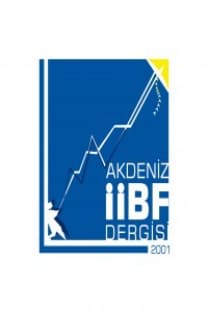TAKIM PERFORMANSININ ÖLÇÜMÜNE METODOLOJİK BİR YAKLAŞIM
“Takım” ve “Takım Çalışması” kavramlarının literatüre girmesi nisbi olarak daha erken bir zamana rastlamakla beraber “Takım Performansının Ölçümü” konusundaki uygulamalara ve akademik çalışmalara rastlanması yakın zamanlara denk gelmektedir. Aslında “Takım” kurmak için ortak performans hedefleri yaratmak olmazsa olmaz bir adımdır. Bunu konu hakkındaki uzmanlıkları otoritelerce kabul edilen Katzenbach ve Smith’in bu çalışmada da yer verilen “Takım” tanımında açıkça görmek mümkündür. Hedeflerin en önemli özelliklerinden birinin ölçülebilir olmaları göz önüne alındığında aslında “Takım Performansının Ölçümü”nün takım etkinliği açısından ne kadar önemli olduğu görülebilir. Bu makalede bu önem vurgulanırken konunun “niçin”lerine değinilmekte ancak esas odak noktası olarak konunun “nasıl”ları anlatılmaktadır. Bu kapsam içerisinde Takım Performansı Ölçüm Sistemi oluşturma süreci adımlar halinde açıklanmakta, ayrıca sistemin diğer performans yönetim sistemleriyle birlikte kullanılabilmesi için gerekli yöntemlere değinilmektedir
A METHODOLOGICAL APPROACH TO TEAM PERFORMANCE MEASUREMENT
Although the concepts “Team” and “Teamwork” have been in the literature for relatively a longer time, the applications and the academic studies about “Measuring Team Performance” have been conducted in the near past. In fact creating common performance goals, is a must step to build a “Team”. This can be seen in the “Team” definition –which is included in this study- of Katzenbach and Smith whose expertise on the subject is accepted by authorities. One of the major characteristics of goals is that they have to be measurable. When this is considered the significance of “Team Performance Measurement” for having effective teams, can be comprehended. This is stressed in this article to underline the “whys” of the subject. However the main focus is kept on how to measure team performance. Within this context, the process steps of establishing a Team Performance Measurement system is explained. Furthermore the methods that are needed to integrate the system to other performance management systems are covered
Keywords:
Team, Teamwork Performance Measurement and Assessment, Measuring Team,
___
Brannick M. T., Salas E., Prince C. (1997) Team Performance Assessment and Measurement, Lawrence Erlbaum Associates, Mahwah, New Jersey.Covey, S. R. (1989) 7 Habits of Highly Effective People, Simon and Schuster, NY.
Daft, R. L. (2000) Management, 5th Ed., The Dryden Press, Orlando, Florida.
Edwards, M. R., Even, A. J. (1996) 360º Feedback: The Powerful New Model for Employee Assessment and Performance Improvement, Amacom, NY.
Jones, S. D., Schilling, D. J. (2000) Measuring Team Performance, The Jossey-Boss Business and Management Series, California.
Kaplan, R. S., Norton, D. P. (1999) Balanced Scorecard, Sistem Yayıncılık, 1. Baskı, Haziran 1999, İstanbul.
Katzenbach, J. R., Smith, D. K. (1998) Takımların Bilgeliği, Epsilon Yayıncılık, 1. Baskı, Ekim 1998, İstanbul .
Kılınç, T. (1986) Takım Kurma ve Geliştirme Yoluyla Örgüt Geliştirme İlişkilere ve Karar Verme Süreçlerine Yönelik Bir Uygulama, Yayınlanmamış Doktora Tezi, İ.Ü. Sosyal Bilimler Enstitüsü, İstanbul.
Knouse, S. B. (1995) The Reward and Recognition Process in Total Quality Management, ASQC Quality Press, Milwaukee, Wisconsin.
Lepsinger, R., Lucia, A. D. (1997) The Art and Science of 360º Feedback, Jossey- Bass San Francisco.
Meyer, C. (1994) “How the Right Measures Help Teams Excel”, Harvard Business Review, May 1994.
Pitts, C. (1995) Motivating Your Organization, McGRAW-HILL, London.
Senge, P., vd. (1994) The Fifth Discipline Fieldbook, Currency and Doubleday, NY.
Ward, P. (1997) 360º Feedback , Institute of Personnel Development House, London.
White, M. A., Nebeker, D. M. (1996) “Team-Oriented Performance Management: An Alternative to Traditional Performance Appraisal”, KNOUSE Stephen B. (der) Human Resources Management Perspectives on TQM içinde, ASQC Quality Press, Milwaukee, Wisconsin.
Zigon, J. (1999) How To Measure Team Performance, ZPG, Media PA, Philadelphia.
- ISSN: 1302-9975
- Başlangıç: 2001
- Yayıncı: Akdeniz Üniversitesi
Sayıdaki Diğer Makaleler
WEB TABANLI UZAKTAN EĞİTİMDE SİSTEM TASARIMI
E-TİCARETTE KARŞILAŞILAN SORUNLAR VE ÇÖZÜM ÖNERİLERİ
BATI DÜŞÜNCESİ, LİBERAL KAPİTALİZM VE ÇEVRE
POLITICAL AND ECONOMIC COOPERATION IN THE MEDITERRANEAN AND MIDDLE EAST
BALKAN CHALLENGES: A TURKISH PERSPECTIVE
TURKISH-GERMAN RELATIONS: POLITICAL ASPECTS
INTERNATIONAL TERRORISM, TURKISH INTERESTS IN THE BALKANS AND THE STABILITY PACT
TAKIM PERFORMANSININ ÖLÇÜMÜNE METODOLOJİK BİR YAKLAŞIM
A CULTURAL APPROACH TOWARDS RISK PROPENSITY AND TOLERANCE FOR AMBIGUITY OF ENTREPRENEURS
ULUSLARARASI DAĞITIM KANALLARINDA İLİŞKİLER: BİR YAZIN TARAMASI
